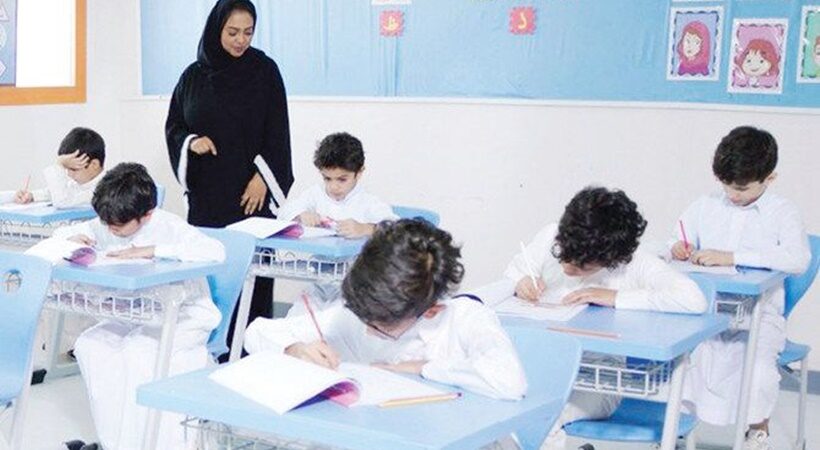As part of the localisation policy, Saudi Arabia, on September 1, initiated the first phase of localisation of educational jobs in private schools and international schools for boys and girls. The move has come after the decision of Ahmed Al-Rajhi, Minister of Human Resources and Social Development, in May this year.
In May, the ministry had declared that they target to create 28,000 jobs for Saudis in several subjects in various phases of public education over the coming three years.
The decision is aimed at increasing the rate of Saudization, Saudi localisation, at private schools in all disciplines, including mathematics, physics, biology, science, and computer. The first phase is being implemented in the international schools, covering specialisations of the Arabic language, national identity, Islamic studies, sociology, art education, and physical education.
Saudization or Nitaqat aims at replacing foreign workers with Saudi nationals. The foreign workers have been dominating the labour market in the Kingdom of Saudi Arabia and the expatriate labor constituted around two-thirds of the total workforce in Saudi Arabia. According to the report of the Saudi Arabia Monetary Agency (SAMA) in 2008, in the private sector, the expatriates were found to represent more than 88 % of the workforce.
However, the rising rate of unemployment among Saudi nationals ranging from 10 percent to 30 percent has caused the government to launch the Saudization policy.
‘The Saudi government has expanded employment of Saudi nationals, as part of its strategic goal of creating a domestic labor force and preparing solid human capital to meet the needs of skilled labor for the large public and private development projects, and to decrease the huge money fleeing the country by foreign labor estimated at 20 Billion SAR annually,’ said the Ministry Of Economy and Planning Report in 2008.
Initially, in 1994, Saudi Arabia had launched the Saudization program to intensively implement during the Sixth Development Plan of the country (1995– 1999). After the initial introduction in 1995, the progress of the Saudization policies had been reviewed and revised in the Seventh Development Plan (2000–2004).
In 2016, as part of the Saudi Vision 2030’s reforms, it further tightened Saudization. “There is no doubt that unemployment is a looming specter and we will take all measures, whether job creation, job substitution or even if required, increasing the Saudization target,” said Al-Haqabani back then.
According to the procedural guide for Saudization of private education, the Saudization percentage of one teacher will be calculated only if his/her monthly wage registered in the General Organization for Social Insurance (GOSI) is not less than SAR 5,000 for a bachelor’s degree holder or its equivalent qualification, reported Saudi Gazette.
While teachers receiving a wage less than SR5,000 would not be counted in the Saudization percentage.



















